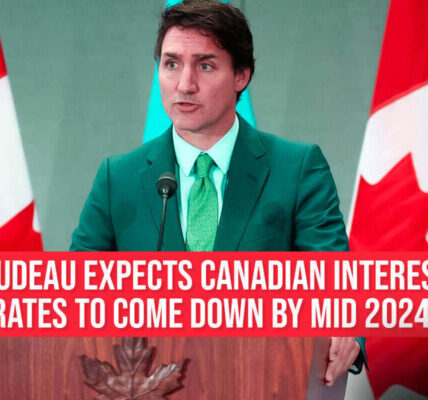In Ottawa this Tuesday, Prime Minister Justin Trudeau’s government rolled out a significant tax reform aimed at the country’s highest earners. Announced by Finance Minister Chrystia Freeland during the annual budget speech, the initiative seeks to increase the tax on large capital gains—profits from assets like stocks or real estate—to fund essential services and programs, particularly in housing and education.
The proposed changes mean that any capital gain over C$250,000 (about $180,804) will now be taxed at 66.7%, a jump from the previous rate of 50%. This tax hike is forecasted to generate nearly C$20 billion (approximately $14.5 billion) over five years. These funds are earmarked for a variety of projects designed to alleviate financial pressures on younger Canadians, including more affordable housing, enhanced student financial aid, rent assistance, and increased job opportunities.
Freeland pointed out that these tax adjustments aim to help fulfill Canada’s promise of enabling a stable middle-class life for its citizens. She noted, “It’s getting tougher for young Canadians to succeed financially through hard work alone, as was possible for previous generations.”
The budget also details an ambitious target to construct nearly 3.9 million new homes by 2031, which seeks to mitigate the growing concern over housing shortages—a problem that has been a thorn in Trudeau’s side as evidenced by declining poll numbers related to housing affordability.
Not everyone agrees with the new tax plan. The Business Council of Canada has voiced strong opposition, claiming that redistributing wealth through higher taxes could harm economic growth. Goldy Hyder, the Council’s President and CEO, criticized the policy, suggesting it serves political rather than economic interests.
Passage of the budget depends on support from the New Democratic Party (NDP), which has kept Trudeau’s minority government in power. The NDP has hinted it might seek changes before fully backing the budget.
As the 2025 general election approaches, the impact of these tax changes on Trudeau’s political future remains to be seen, especially against the backdrop of the Conservatives’ promise to reduce government spending and address the deficit.
This new tax strategy represents a shift in the government’s approach to economic issues in the post-pandemic era, marking a potential long-term change in how Canada manages public finances and social welfare.





